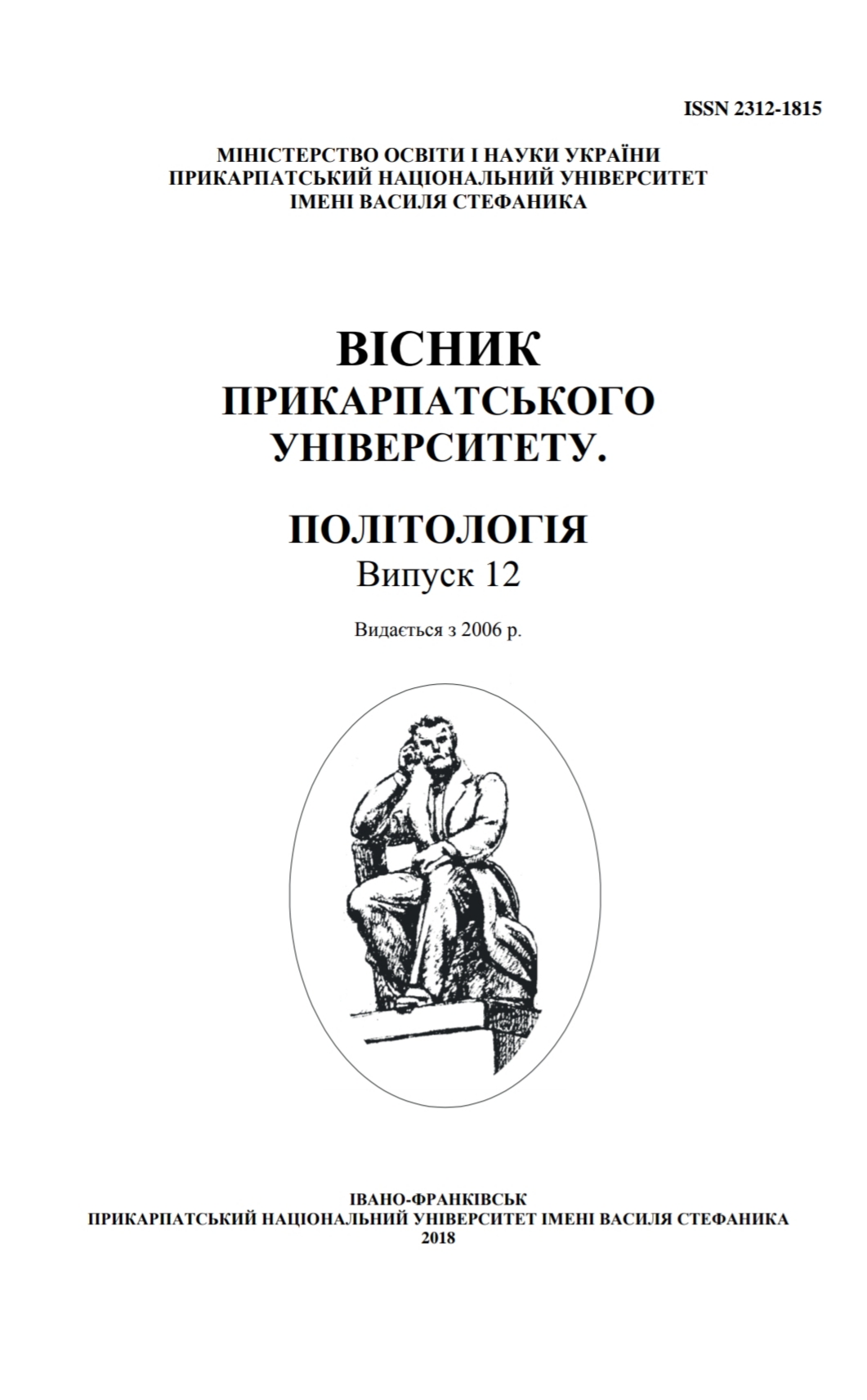Discourse of ideology as a means of legitimizing power
Keywords:
Keywords: legitimacy of power, political power, ideology, politicsAbstract
The article proves that despite considerable interest in the ideology of many outstanding figures of political, philosophical and sociological thought, first of all, due to its outstanding role in supporting and changing political regimes, the mechanism of its functioning, the influence on the organization of the legitimate
space and the structure of the mobilization tools support in favor of one or another policy remains unclear. Ideologization was hardly seen as an instrument of legitimizing political power, which ensures the conduct of any political course as a means of management through the development of contexts, meanings, goals, criteria, ideals, strategies, beliefs, through the deconstruction of the symbolic universe and the creation of value structures for everyday activities, as a cognitive-value and strategic-operational system that forms the legitimate perception of socio-political reality.
It is substantiated that the role of ideology begins to grow with the fall of the role of religion. The task f ideology is to create vital senses and to develop a "vision of the world", hence the legitimization of political and social relations. This does not mean that religion completely loses its legitimate significance; it loses the monopoly on the legitimate interpretation of the world. Retrospectively initiating the destruction of traditionalist ideas and the main principle of political life - the divine right of the kings of humanists. Their creativity destroys the key principles of Western Christianity, which were of paramount importance as a form of ensuring the legitimation of political power. Protestantism in practice meant the cult of the text (initially biblical) as a source
of legitimacy, the creation of Protestant church systems, the establishment of a relative monopoly of the state on the legitimate interpretation of socio-political reality, the gradual establishment of a free and equal personality, and, subsequently, the deployment of enlightenment and bourgeois revolutions in Europe and America. It is determined that ideology is formed in the process of seeking a new guarantee of the future, correctness, objectivity, truthfulness of understanding the world in the day after the French Revolution. Ideology is a synthesis of a systematized, comprehensive assessment of reality from the standpoint of a substantiated imaginary future, which either forces to protect the existing socio-political order or change it, and programs of action aimed at achieving an acceptable or ideal state of organization of society as a subject of social and political activity, the creator of history.


